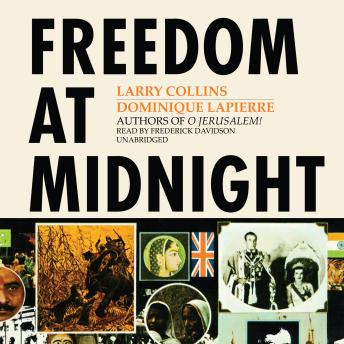

British, French, Dutch, Portuguese within 25 years all that red on the map had diminished to a handful of trifling pinpoints. Raj was, indeed, the cue for the unbelievably rapid disintegration of all European colonial domination everywhere. It is a stupendous subject, The independence of India from the Britishīy Larry Collins and Dominique La Pierre. Their subject is the end of the British Raj and the birth of indefiendent India and Pakistan.” The celebrated and successful double‐act of Larry Collins and Dominique Lapierre, historians‐in‐ordinary to the 20th century, who have already encapsulated (far from the right word) the liberation of Paris and the siege of Jerusalem, have now, in the publisher's words, “re‐created the tumultuous days in which a subcontinent and its 400,000,000 people became free, only to find that the price of their freedom was partition, war, riots, and murder. However, this is a book and not a lament. Indeed to me, who personally shared that moment of hope, it almost seems as though that were so. Those of us who have been ineradicably involved in India for generations-including the very period this hook defines-must now read it less critically than nostalgically, as though that Midnight of 1947 had been a century ago.

Overnight “Freedom at Midnight,” which should have been a salutation, turned into a requiem.Īll this gives an especial poignancy, and perhaps even importance, to the hook in question, whose very title now has unintentionally sad undertones of mockery. Gandhi's India between the conception of this book and its birth would have rocked even the most mature political society, and India's was always fragile and insecure. It is also dearly too late to hope that it can survive and grow uncrippled, because what happened to Mrs.

It is probably too soon to say that India's democracy died untimely in its 28th year. There is a very cruel irony in this that no one could have possibly foreseen. No worse luck could have befallen a book recalling the deeply moving story of India's achievement of freedom from an outside ruler than for it to make its appearance so soon after that freedom had suddenly and brutally been destroyed from within.


 0 kommentar(er)
0 kommentar(er)
